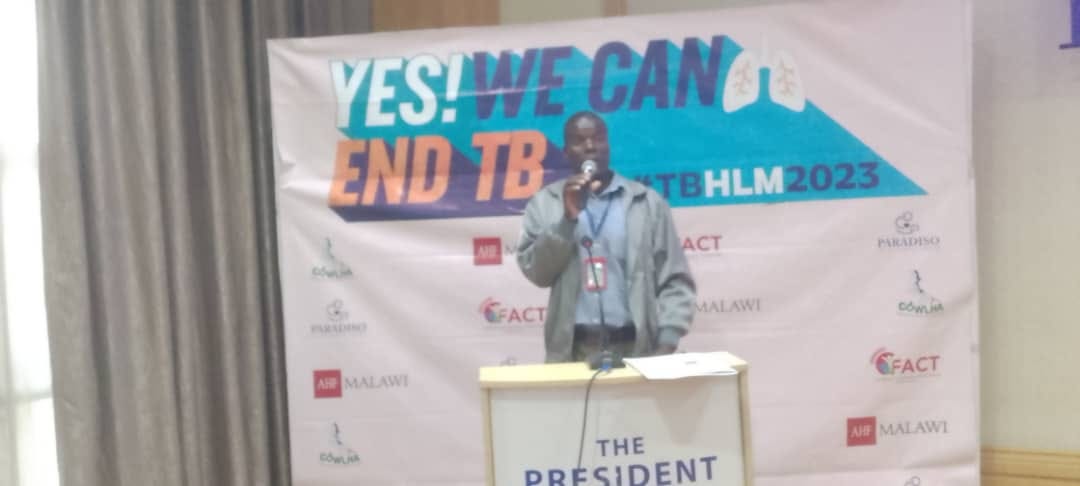Gwetsani Difati, Ex-TB Patient, Calls for Focus on Post-TB Care
Since his TB diagnosis on February 2nd, 2001, Gwetsani has struggled with lingering difficulties.
DOWA, Malawi — Gwetsani Difati, a former pulmonary TB patient from Dowa district, who successfully completed his TB treatment, is urging authorities to prioritize post-TB care, writes Meclina Chirwa.
In an exclusive interview with AfricaBrief, Gwetsani shared that although he conquered TB, the challenges he faces in the aftermath of the disease have taken a toll on his family life.
Since his TB diagnosis on February 2nd, 2001, Gwetsani has struggled with lingering difficulties.
Despite diligently adhering to an eight-month treatment regimen, he continues to face limitations in his ability to work effectively.
"I was diagnosed with TB on 2nd February, 2001. I accepted my fate and adhered to drugs. I managed to take drugs religiously for eight months because I was told that if I defaulted I would die. However, since then, I have been experiencing some difficulties. I can’t work with full force," he explained.
Gwetsani emphasized that there has been minimal effort to determine how post-TB care can be delivered effectively and sustainably, especially in low-resource, high-TB burden settings.
"Pulmonary TB survivors bear a significant burden of post-TB lung damage, which often goes undiagnosed within the existing TB management pathway. This damage is associated with adverse patient outcomes, including accelerated lung function decline, ongoing respiratory-related health issues, persistent chest symptoms, and difficulty in working," he pointed out.
To address these challenges, Gwetsani joined a group of volunteers in Lumbadzi, advocating for improved TB care and support.
Gwetsani is not alone in facing post-TB issues in the country.
He is urging Civil Society Organizations to raise these concerns at the upcoming United Nations High-Level Meeting (UNHLM) scheduled to take place on the sidelines of the UN General Assembly in September 2023.
On Friday, the AIDS Healthcare Foundation-AHF and Facilitators of Community Transformation-FACT jointly organized a Media and CSO meeting to discuss Malawi's preparedness for the upcoming UNHLM.
Aggrey Munthali, FACT’s head of programs, stressed the critical importance of the high-level meeting.
He highlighted that it presents an opportunity for Malawi to advocate for increased support in the fight against TB and HIV/AIDS.
"This meeting is very important; however, our focus is on funding for the fight against TB and HIV/AIDS. We aim to lobby for more resources to effectively combat TB by 2030," he emphasized.
Triza Hara, AHF’s country programs manager, noted, "The upcoming UNHLM will help us assess the gaps in the TB fight and discuss strategies to address them. Given the challenges we faced with COVID-19, this meeting provides an opportunity to explore better ways to combat diseases like TB during pandemics."
Malawi previously committed to the first TB UNHLM declaration in 2018.
The TB UNHLM is held every five years, and this year's event is considered crucial for achieving the 2030 end TB targets.



